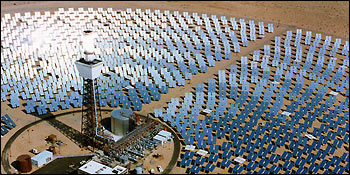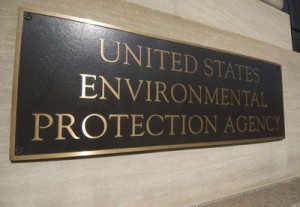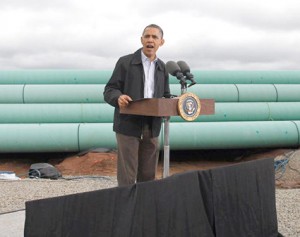31 item(s) were returned.
Senior Policy Analyst
Information Technology and Innovation Foundation
Whether or not the world has all of the clean energy technologies it needs to dramatically cut greenhouse gas emissions is an important ongoing debate among the climate policy community. Buoyed by steep cost reductions for wind and solar power technologies during the past decade, proponents argue political will is the major factor holding clean energy back from dominating the global energy market. Critics counter that even with recent cost reductions clean energy still isn’t realistically competitive with fossil fuels everywhere without the help of unsustainable subsidies and contentious government mandates. The debate over whether clean energy is ready for… [more]
View InsightDistinguished Professor of Energy
University of California, Berkeley
This is the second in a series of discussions led by invited speakers at the upcoming Physics of Sustainable Energy conference to be held March 8-9, 2014 at the University of California, Berkeley. Find more details below. The new Ivanpah Solar Electric Generating System located in California’s Mojave Desert is the world’s largest concentrated solar thermal power station. The first of it’s kind at this scale, Ivanpah’s 392 megawatts of capacity (enough to power 140,000 homes) is generated by 360,000 garage-door-sized mirrors concentrating sunlight onto a 40-story boiler tower. The heat from the sunlight boils water in the tower and… [more]
View InsightVisiting Scholar
American Enterprise Institute
According to the Environmental Protection Agency, the Social Cost of Carbon (SCC) is supposed to be “An estimate of the economic damages associated with a small increase in carbon dioxide (CO2) emissions, in a given year”. However, the EPA’s “analysis” of the “social cost of carbon,” developed recently as justification for a rule constraining energy use by microwave ovens, ignores the fact that U.S. emissions of greenhouse gases are about 17 percent of the world total. Therefore, even an immediate reduction by half in U.S. emissions would yield a reduction in world temperatures of about one-tenth of one degree by… [more]
View InsightIt has been recently suggested that natural gas is a more climate friendly alternative to many fossil fuels, and a necessary “bridge” to a low carbon future. The main component of natural gas is methane, which is a powerful GHG that has significantly more heat trapping potential than CO2. Natural gas is the cleanest burning fossil fuel, yet when it is extracted from the ground, unburned methane can escape into the atmosphere. Significant discussion has developed around the extent of these fugitive emissions and whether they undermine the climate benefits of using natural gas as a primary fuel. A 2011… [more]
View InsightPresident
Micro-Utilities, Inc.
The President was on target during his speech on climate change at Georgetown University when he announced new initiatives to curb the release of greenhouse gases and thereby slow down the effects of climate change. However, a key aspect to meeting this huge challenge is to set national goals based on specific timetables. Without President Kennedy setting a goal to land an American on the moon by a specific date, it is doubtful that we would have ever achieved this. President Obama’s goal-setting in his recent speech was incomplete and rather imbalanced. There was a goal to double renewable energy… [more]
View InsightLast week Governor Dave Heineman of Nebraska approved the Keystone XL pipeline along a revised route, “which avoids the environmentally-sensitive Sand Hills region of Nebraska.” The final decision now rests in the hands of President Obama, who last year rejected the previous route on grounds that construction of the pipeline and the possibility of a spill could contaminate the Ogallala Aquifer in the Sand Hills region. For many environmentalists and opponents of the Keystone XL project, however, this revised route doesn’t address the bigger climate argument: Due to the high level of greenhouse gasses emitted during production of oil from… [more]
View Insight“Our National Energy Policy: Post-Election Prospects and Challenges” December 14th, 2012 National Press Club, Washington, DC See below for an abridged version of the transcript and a full video recording of the event. You can view or download the full transcript here. Opening Remarks: WILLIAM SQUADRON, President, OurEnergyPolicy.org Speakers: JAMES CONNAUGHTON, Executive Vice President and Senior Policy Advisor with Exelon Corporation and Former Chairman of the White House Council on Environmental Quality GENERAL JAMES L. JONES, USMC (retired), Senior Fellow at the Bipartisan Policy Center, Senior Advisor to the American Energy Innovation Council with the Bipartisan Policy Center, and Former… [more]
View InsightIn an August 5th op-ed, the New York Times’ Thomas Friedman urges America to “Get It Right On Gas.” While noting domestic natural gas development’s potential to address a host of energy policy issues – the trade imbalance and job creation, greenhouse gas emissions, and energy security – Friedman quotes Energy Innovation’s Hal Harvey in asking if natural gas offers “a transition to a clean energy future, or does it defer a clean energy future?” “A sustained [natural] gas glut could undermine new investments in wind, solar, nuclear and energy efficiency systems – which have zero emissions – and thus… [more]
View InsightCongressman Jim McDermott (D-WA) has introduced legislation that would put a price on CO2 emissions. Known as the Managed Carbon Price (MCP) Act, the bill is structured more as a cap-and-dividend program than cap-and-trade, and is intended to reduce emissions while also directing revenue towards deficit reduction and reimbursing consumers for costs. The bill would have a target of 80 percent CO2 reductions by 2050. “My bill would reduce carbon emissions, and it returns all the money to consumers and deficit reduction. Businesses want this kind of predictability, consumers need to be protected, and we need to step up and… [more]
View InsightA recent op-ed by noted academic Bjorn Lomborg questions the idea that renewable energy – wind, in particular – is up to the task of mitigating climate change. Renewables are not cost-competitive with traditional energy sources, he argues; and because renewables are intermittent and must be backed-up by base-load or peaker power plants, their true costs per kWh is often understated and their CO2 reduction potential overstated. Much of Lomborg’s argument focuses on the UK’s plan for a 20% reduction in CO2 by 2020 that, according to the op-ed, would require that wind account for 31% of the country’s electricity… [more]
View Insight





